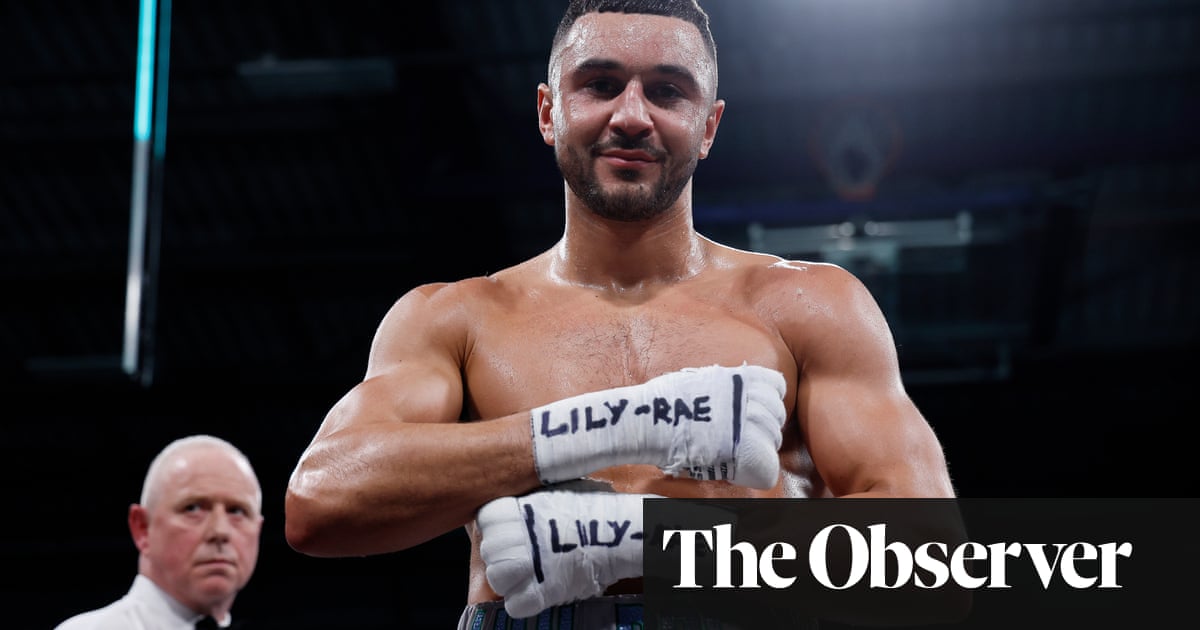Back in 2011, Bodø/Glimt were cash-strapped and forced into a routine beloved of park footballers. They were labouring in Norway’s second tier and, as their sporting director, Håvard Sakariassen, puts it, had “hit the wall”. Those long trips from inside the Arctic Circle feel even more onerous when you are doing everything yourself and, as they prepare to visit Manchester United, they would be forgiven a moment to marvel at how the picture has transformed.
“We didn’t have a kit manager so we washed our kit at home and came to training already dressed,” says Sakariassen, who had recently quit as a player and found himself taking de facto responsibility for managing the team’s equipment. “To compare that to our resources today, it is a totally different world.”
It says everything that, when Bodø/Glimt walk out at Old Trafford, they will neither look nor feel out of place. This is their fifth straight season of European football and they have racked up the scalps. A Roma side managed by José Mourinho were famously thrashed 6-1 at their Aspmyra Stadion in the 2021-22 Conference League. Celtic and, in this season’s Europa League, Porto are among a string of other victims. Arsenal were run mightily close when they visited two years ago. Whereas once there was novelty value in seeing a club from northern Europe’s furthest reaches, and a home town of fewer than 50,000 inhabitants, bloodying big-name noses, they now feel like a staple.

“It’s been quite a journey,” says Ulrik Saltnes, a long-serving midfielder who has made 370 appearances since joining in those days when a return to the top flight seemed some way off. “It’s almost hard to imagine really. Everything was so much smaller. There were so fewer people and the level was completely different. From being a team bouncing up and down the leagues to being a stable team in Europe every season since 2020, it’s just not comparable at all.”
That stability has coincided with the tenure of Kjetil Knutsen, a 56-year-old manager who has been linked with Premier League jobs but remains at the helm of Norway’s dominant force. Bodø/Glimt had never won an Eliteserien title until four years ago, when they streaked away at the top by 19 points. They have claimed two more and, as long as they beat Lillestrøm in a grandstand finale to the domestic campaign on Sunday, will add another.
It has been a triumph of club-building: a success story unalloyed by wealthy backers or reckless gambles. Bodø/Glimt picked a proactive, progressive style of football and stuck with it, recruiting imaginatively while sticking firmly to their local roots. Bayern Leverkusen’s Nigeria striker Victor Boniface cut his teeth there but the overwhelming majority of Knutsen’s squad is Norwegian. They have been able to reinvest several hefty transfer fees but, as Sakariassen says: “We don’t see ourselves as a selling club.”
Instead they are driven by process. “We don’t have any goals in the club,” Sakariassen continues. “We don’t, before the season, say: ‘Our aim is to become No 1 or 2.’ Or: ‘We’re going to win 80% of the home games.’ We threw that in the bin six years ago. We just work on trying to get better every day, doing the smart things, just working hard and only having one focus: to get the product to get better.”
They have succeeded in that. Outwardly bigger clubs in Scandinavia readily accept Bodø/Glimt have become a model for how clubs in the region might thrive. A region whose clubs’ influence on the continental stage has faded is represented by a standard bearer few could have expected. It would be a welcome bonus for Sakariassan and his cohort if they could help raise the levels of all around them. “I think you will see Norwegian teams doing well in future,” he says. “We push each other.”
Saltnes points out that domestic opponents have found ways to tackle Bodø/Glimt that European rivals are yet to grasp. The tightness of this year’s title race, Brann poised a point behind, suggests so. Last year Knutsen’s team finished nine points clear of the same opponents so perhaps they will not become the kind of wrecking ball that has dominated similarly sized championships while giving little to the wider ecosystem.
after newsletter promotion
The focus, though, remains on themselves. Bodø/Glimt’s next local project will be to build a new stadium, although nothing beyond their means. The charmingly atmospheric Aspmyra, which holds will be replaced by a slightly bigger 10,000-capacity venue. It will surely host Champions League football at some stage. They should have made a remarkable debut in this season’s group phase but, having taken a two-goal lead against Red Star Belgrade in the playoffs, were consigned to a 3-2 aggregate defeat.
Such a close-run thing was a further indicator of their progress. Performing at Old Trafford will be too and there will be some personal significance for Sakariassen, who admits to being one of the many Norwegians who followed United as a youngster. The main source of pride, though, comes from putting his home town near the centre of the European game’s map against all odds.
“When I travel around Europe it’s weird for me, coming from Bodø and knowing the history that we are a small club, that everyone knows us,” he says. “It’s amazing for us, and also to see the impact the club has in Bodø, in the north of Norway and also in Norway. It’s really extraordinary for me as a Bodø/Glimt boy.”

.png) 1 month ago
5
1 month ago
5













































